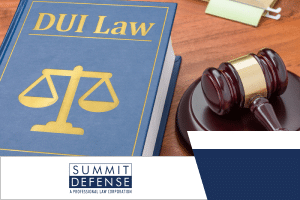AVAILABLE 24/7
 California law currently has many legal statutes covering driving under the influence (DUI). California DUI laws do not only mention the defendant’s blood alcohol content. The state’s laws also make it unlawful for defendants to operate a vehicle while they are impaired despite their BAC.
California law currently has many legal statutes covering driving under the influence (DUI). California DUI laws do not only mention the defendant’s blood alcohol content. The state’s laws also make it unlawful for defendants to operate a vehicle while they are impaired despite their BAC.
California Vehicle Code 23152 VC. This legal statute is the primary basis of drunk driving cases in California. Section (a) of this code restricts drivers from driving while under an alcoholic beverage. Section (b) of this Vehicle Code states that driving with a BAC of 0.08% or more is unlawful.
California Vehicle Code 23152 (f) VC. This section of Vehicle Code 23152 prohibits drivers from driving while under the influence of an illegal and dangerous substance.
California Vehicle Code 23152 (g) VC. Sections (f) and (a) of VC 23152 mention drugged and drunk driving separately. This section, however, makes it unlawful for drivers to drive under the influence of both substances.
California Vehicle Code 23152 (d) VC. This vehicle code section is specifically for commercial drivers. According to this law, commercial drivers cannot operate a service vehicle with a BAC of 0.04% or more.
California Vehicle Code 23152 (e) VC. This section of the vehicle code states that for-hire drivers should follow the same rule as commercial drivers. They cannot drive with a BAC of 0.04% or more.
California Vehicle Code 23153 VC. This legal code pertains to intoxicated drivers inflicting injuries to the victim.
A separate set of laws covers murder or intoxicated vehicular manslaughter. These laws are Penal Code 187 PC, Penal Code 191.5(a) PC, and Penal Code 191.5(b) PC. These individual statutes are further discussed in a later section.
 Violating California drunk driving laws has accompanying penalties. Standard California DUI penalties include jail time, penalty fines, license suspension, etc. However, the court may also impose additional or secondary consequences depending on the nature of the crime.
Violating California drunk driving laws has accompanying penalties. Standard California DUI penalties include jail time, penalty fines, license suspension, etc. However, the court may also impose additional or secondary consequences depending on the nature of the crime.
Here are some of the secondary consequences brought by a DUI arrest:
California Vehicle Code section 23152 (b) makes it unlawful for individuals to operate a motor vehicle with a 0.08% BAC. A DUI per se is when you are arrested for violating the state’s legal limit.
A DUI per se looks at your blood alcohol content instead of your level of impairment. Even if you argue that you can drive well despite your blood alcohol content, a law enforcer can still arrest you.
California Vehicle Code section 23152 (d) is another legal statute the court can use to order a DUI per se. According to this statute, driving a commercial vehicle with a 0.04% BAC is unlawful.
Different people have varying alcohol tolerance. These are some of the factors that can affect the level of blood alcohol concentration in your body:
There are different ways your party can fight a DUI per se. Your party can question the validity of the blood or breath test. Another way to argue a DUI per se is to use the rising blood alcohol defense.
Hiring a criminal defense lawyer can help you build the best legal defense based on your current situation. Your lawyer will carefully assess your case and raise any questions or arguments that could dismiss your case or lessen penalties for DUI.
 DUI offenses are severe criminal violations in California. These crimes have extreme criminal penalties, and the penalty increases if you have prior DUI convictions.
DUI offenses are severe criminal violations in California. These crimes have extreme criminal penalties, and the penalty increases if you have prior DUI convictions.
Outlined below are the different punishments for each level of DUI offense.
In most cases, a first DUI conviction in California is charged as a misdemeanor. A first-time DUI arrest has the minimum penalties compared to other DUI offense levels.
 A second offense DUI has heightened penalties compared to a first offense DUI. A defendant is charged with a second DUI if they committed the same violation within ten years of their first DUI.
A second offense DUI has heightened penalties compared to a first offense DUI. A defendant is charged with a second DUI if they committed the same violation within ten years of their first DUI.
Two prior convictions of DUI lead to a third offense DUI. A third offense DUI is still a misdemeanor in California. However, inflicting damage to a victim could increase your offense level.
 Felony DUI charges are given to defendants who committed fourth offense DUIs. The court may also charge a defendant with a felony DUI if they have prior alcohol-related offenses and severely injured a victim.
Felony DUI charges are given to defendants who committed fourth offense DUIs. The court may also charge a defendant with a felony DUI if they have prior alcohol-related offenses and severely injured a victim.
 Injuring a victim may escalate your misdemeanor into a felony, no matter how many prior convictions you committed. Moreover, a prior felony DUI may also prompt the court to charge you with a felony if you injured the victim while driving under the influence.
Injuring a victim may escalate your misdemeanor into a felony, no matter how many prior convictions you committed. Moreover, a prior felony DUI may also prompt the court to charge you with a felony if you injured the victim while driving under the influence.
 California DUIs resulting in the death of the victim violate multiple legal statutes. These laws are as follows:
California DUIs resulting in the death of the victim violate multiple legal statutes. These laws are as follows:
PC 191.5 (b) is a wobbler offense. The court will identify the case’s specifics before imposing an offense level. In contrast, PC 191.5 (a) is always a felony offense.
As a misdemeanor, a DUI resulting in murder is punishable with:
As a felony, violators may face:
When you commit a DUI in California, the court will prompt you to sign a Watson Advisement. This is a legal record documenting that you are aware of the dangers of driving under the influence.
The court could use this against you if you commit another DUI in the future. Signing this form signifies that you understand the consequences of intoxicated driving. Therefore, you cannot use “not knowing” the consequences as a legal defense.
If your following DUI arrest killed a victim, you would face harsher penalties. Without the Watson Advisement, you may only receive charges for vehicular manslaughter. However, the court can charge you with DUI murder by signing this document.
 California Vehicle Code section 23152 (d) makes it unlawful for commercial drivers to operate a vehicle with a BAC of 0.04%. The penalty for a commercial DUI varies depending on how many times a defendant committed the crime. Injury is also an important factor considered by the court.
California Vehicle Code section 23152 (d) makes it unlawful for commercial drivers to operate a vehicle with a BAC of 0.04%. The penalty for a commercial DUI varies depending on how many times a defendant committed the crime. Injury is also an important factor considered by the court.
Misdemeanor commercial DUIs are punishable by:
In contrast, felony commercial DUIs are punishable by:
 An immigrant committing a DUI charge will face immigration consequences for their crime.
An immigrant committing a DUI charge will face immigration consequences for their crime.
Implied consent law makes it mandatory for lawfully arrested drivers to submit to a blood or breath test. A driver who refuses to take the compulsory chemical test will face legal consequences.
Refusing a chemical test subsequent times can have your license suspended for more than one year. Furthermore, you will have to pay a penalty fine of $125.
Suppose you have a prior DUI arrest and refused to take the mandatory chemical test. In that case, the court has the right to suspend your license for two years. Prior intoxicated driving convictions will add a count to your refusal to test.
A DUI defense lawyer can help you navigate through the implied consent law. They can question the validity of the arrest, whether you are lawfully arrested or not.
 Negotiating a plea bargain in DUI cases can be complicated and challenging. The court will only dismiss a claim if your party presents a strong argument that the chemical test results are invalid.
Negotiating a plea bargain in DUI cases can be complicated and challenging. The court will only dismiss a claim if your party presents a strong argument that the chemical test results are invalid.
DUI lawyers often advise defendants to go for a possible reduction. In most cases, a lawyer can help you reduce your DUI charges into a wet reckless. A wet reckless charge has less harsh penalties compared to DUIs.
Penalties for a wet reckless conviction include:
Unlike DUIs, the court does not require wet reckless violators to a license suspension. In addition, they are also not required to install an IID. Wet reckless charges also do not appear in the criminal record.
However, you must remember that not all cases are eligible for a plea agreement or negotiations. The court will remain fair and impose rightful punishment on those who committed grave crimes.
An SR-22 requirement is also known as a Certificate of Financial Responsibility. Contrary to popular belief, SR-22 is not an insurance policy. This is a form signed by your insurance company to prove that you have adequate auto insurance coverage.
Your insurance company needs to file this form after your license is suspended. The insurance provider will fill out the form on your behalf and submit it to the Department of Motor Vehicles (DMV).
Committing a major traffic violation can cause your insurance premiums to increase significantly. The average auto insurance premium in California costs around $2,000 per year. With a DUI record, this could increase up to $5,000.
Hiring a DUI attorney can help you prevent further damage on your end. They will help you by providing astute consultations and efficient legal assistance. A lawyer can also help you build a case to avoid insurance premium surges.
 The court will limit your driving privileges if you are arrested for a DUI in California. A convicted driver can apply for a restricted license after an arrest. They can use this license to drive their car for work, school, or emergency matters.
The court will limit your driving privileges if you are arrested for a DUI in California. A convicted driver can apply for a restricted license after an arrest. They can use this license to drive their car for work, school, or emergency matters.
The court may also require you to attach an ignition interlock device (IID). This device works like a breath analyzer installed on your car. Before starting your vehicle, you will have to test your blood alcohol content first.
Subsequent DUI convictions increase the duration of your license suspension and IID use. A first offense requires you to use an IID for six months. You will need to use an IID for one year during a second offense. Lastly, a third offense will require you to use an IID for two years.
 There are numerous statutes covering traffic offenses in California. Understanding these laws is complicated and challenging for most defendants.
There are numerous statutes covering traffic offenses in California. Understanding these laws is complicated and challenging for most defendants.
Hiring a DUI defense attorney can help you navigate your way through the complex legal world.
Our DUI attorneys at Summit Defense helped numerous clients face their DUI charges. In one of the cases we handled, we were able to help our client clear his case by presenting compelling evidence that the enforcer unlawfully arrested our client.
The most commonly used drunk driving defense is unlawful arrests. Often, police officers do not have substantial proof to conduct a chemical sobriety test.
Our criminal defense law firm has a combined 120 years of experience defending clients against criminal charges. Contact Summit Defense now to start your free, no-obligation consultation. We are available 24/7. Call us at 1-866-851-9645 or contact us using our online form.
latest news
Getting arrested for a DUI in San Jose can be a stressful and confusing experience. You might have many questions about what happens next and what you should do. Knowing the process and what to expect can help you navigate this challenging situation. It’s important to remember that a DUI arrest is severe, and the […]